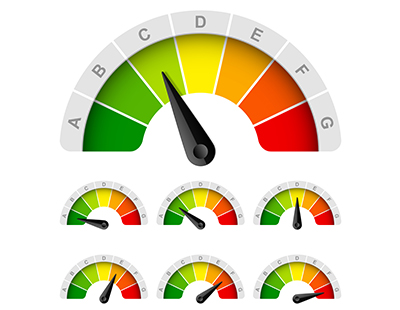
Russia’s invasion of Ukraine is likely to add to fuel price pressures with a typical household annual bill now predicted to hit £3,000 by the end of 2022.
Rental properties and tenants are often considered to be most vulnerable to extreme energy prices - the properties are, on average, believed to be less energy efficient than owner occupied units, and statistics suggest typical private tenants are less affluent than home owners.
A 54 per cent increase in the energy price cap is happening in April but, less well known, there is a further review of the price cap in October - and this second review is expected to feel the effects of the Ukraine crisis.
Emma Pinchbeck, the chief executive of the energy industry body Energy UK, says: "It's a really worrying time for both customers and industry.
"We've been saying since the autumn that we'd expect bills to go up again in October. With what we're seeing in Ukraine and in the oil and gas markets, we're now expecting those to go up further."
She says that if oil prices remain at elevated levels "you can expect bills to be anywhere between £2,500 and £3,000 in October depending on the tariffs people have and what happens in the market”.
Average household energy bills are already expected to rise to a typical £2,000 in April.
Pinchbeck adds: "We have been saying for a long time this is an enduring crisis on the gas price and now that's being exacerbated by what's happening in Ukraine."
Russia is the second biggest exporter of crude oil, and is also the world's largest natural gas exporter.
In recent months ARLA Propertymark has fired a shot across the bows of the government as it aims to improve energy efficiency in the private rental sector.
Research at the tail end of last year from The Mortgage Works revealed that 52 per cent of landlords have thought about selling some or all their properties because they don’t think they’ll be able to either complete or finance work to reach the required standard.
Current legislation in England and Wales requires buy to let properties to have at least an EPC rating of E. However, to improve the energy efficiency, the government wants to increase the requirement to a C for all new tenancies by 2025 and for all existing tenancies by 2028.
In December ARLA policy and campaigns manager Timothy Douglas urged the government to set more “realistic” targets.
“As domestic energy use accounts for 14 per cent of overall UK emissions and 90 per cent of homes in England currently use fossil fuels – improving the energy efficiency of the nation’s housing stock is one of the most significant challenges in reaching net zero emissions” he said.
“The private rented sector has its part to play, but in recent years, landlords have faced considerable legislative change, and during a time of financial strain due to the Covid-19 pandemic, which will continue to have lasting effects, the costs of bringing housing stock up to EPC Band C will be a significant challenge for many.
“If the alarming number of landlords who have considered selling up within The Mortgage Works report go on to do so, it will have a detrimental effect on not only the UK government’s ambitions to reach Net Zero, but also for the thousands of renters looking to be housed as stock levels deplete.”













%20-%20IMAGE%20Client%20Accounting%20%E2%80%93%20what%20are%20your%20options.jpg)

.png)

%20(002).png)

%20(002).jpg)










Join the conversation
Jump to latest comment and add your reply
Well it has certainly torpedoed the all inclusive model which was sinking anyway, HMO landlords are pulling their hair out this week, and I would imagine the R2R sector is pretty worried about this years numbers.
Fear not, the Prime Minister and her husband are pressing ahead with their Net Zero plans.
Zero emissions and cheap energy?
Sounds do-able.
Please login to comment